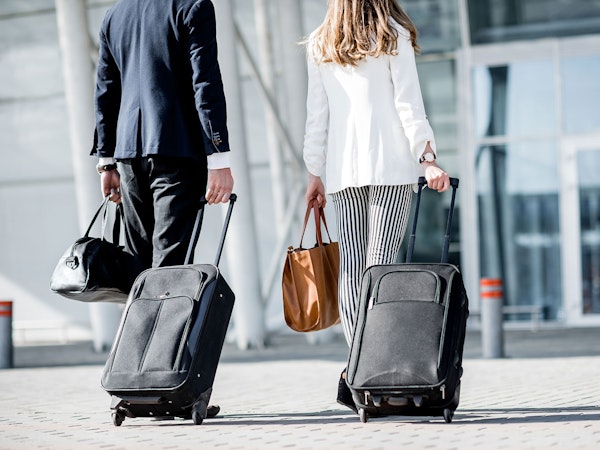EU business travel post-Brexit
Business travel to the EU has become significantly more complicated since 1 January, with many activities carried out by short-term business visitors now requiring a work permit. Business travel includes activities such as travelling for meetings and conferences, providing services, and touring art or music.

The 90-day rule
If you travel to Schengen area countries (including Switzerland, Norway, Iceland and Liechtenstein) for less than 90 days in a 180-day period, certain activities, such as attending a business meeting or conference, conducting market research or a sales trip, are permitted without the need for a visa or work permit.
Bulgaria, Croatia, Cyprus and Romania, who are not yet Schengen area countries, form a separate bloc, with another combined limit of 90 days’ entry. You can spend 30 days each in France, Germany and Spain, but 30 days in France and Germany, followed by 31 days in Spain would breach the 90-day limit. However, there would be no problem if the second, 31-day trip was instead to, say, Romania.
Business travellers will need to track how many days they spend in the EU, although this should be fairly straightforward given your passport will be stamped on entry to and exit from each EU country you visit.
When the 90-day rule does not apply
A visa, work permit or other documentation may be required if you are planning to stay for longer than 90 days in a 180-day period, or if you’ll be doing any of the following:
- carrying out a contract to provide a service to a client in an EU country in which your employer has no presence;
- providing services in an EU country as a self-employed person; or
- transferring from the UK branch of a company to a branch in an EU country, even if just for a short period of time.
Advice about travelling abroad, including the latest information on Covid-19, safety and security, entry requirements and travel warnings, can be found on the government’s travel advice website.


